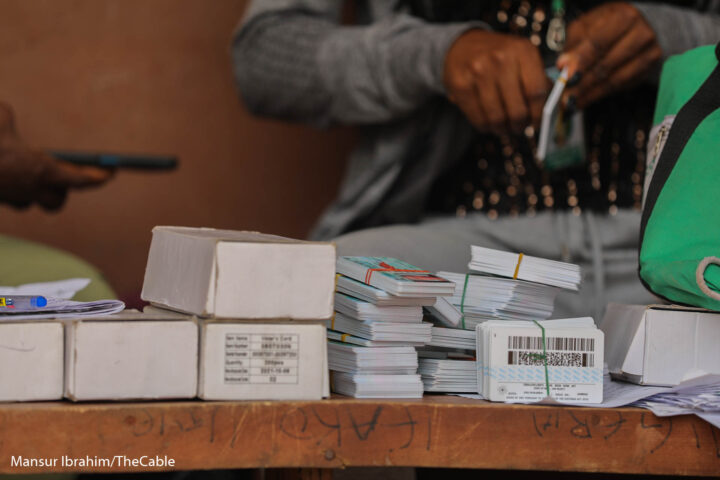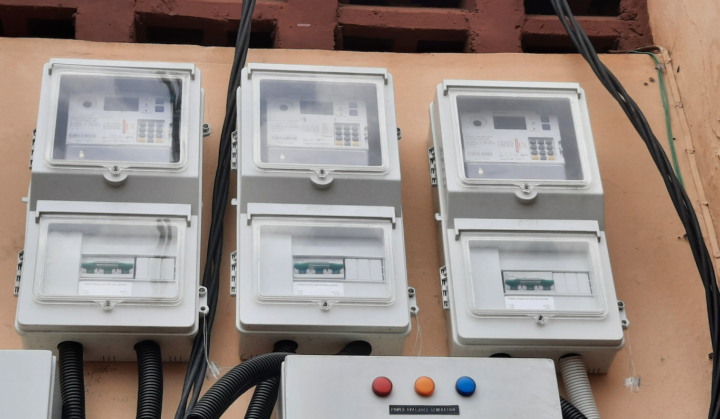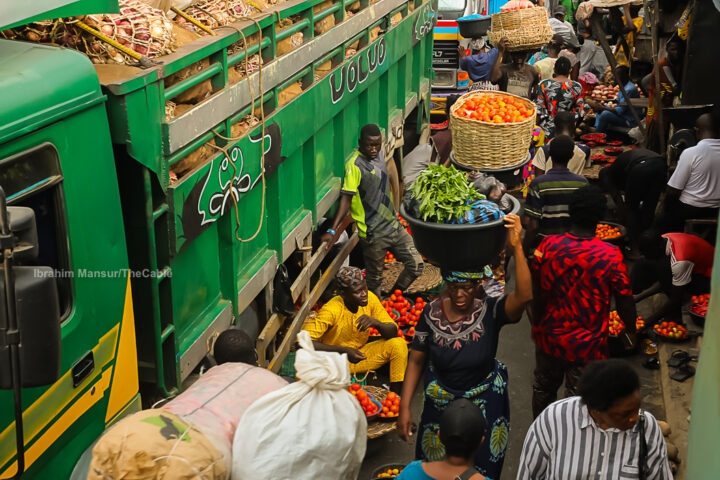PVCs | File photo
Ahead of the 2027 general election, the national assembly is considering sweeping amendments to the Electoral Act 2022.
The proposed amendments include compulsory electronic voting, mandatory electronic transmission of results, early voting for essential workers, and the replacement of the permanent voter card (PVC) with alternative identification such as the national identification number (NIN) and passport.
The proposals, unveiled during a public hearing organised by the joint committee on electoral matters on Monday, also seek to move the 2027 general elections to November 2026 — six months before the scheduled May 29 handover date — to allow all post-election disputes to be concluded before inauguration.
Lawmakers say the reforms aim to modernise Nigeria’s electoral system, strengthen transparency, and eliminate long-standing irregularities.
Advertisement
PVC MAY NO LONGER BE COMPULSORY
Members of the national assembly are seeking to amend Sections 18 and 47 of the Electoral Act to make the use of PVCs optional during elections.
The proposal argues that the Bimodal Voter Accreditation System (BVAS) does not recognise the microchip embedded in PVCs, and therefore, the card should not remain the only valid form of voter identification.
Advertisement
“The use of Permanent Voter Card (PVC) will not be compulsory, since the Bimodal Voter Accreditation System (BVAS) does not recognise the microchip in the PVC,” the document reads.
“Every registered voter will be able to download and print their voter’s card whenever needed. This totally eradicates the issue of buying and selling PVCs, likewise all related offences.”
Instead, acceptable means of identification will include a National Identification Number (NIN), Nigerian passport, or birth certificate.
BVAS, PVC CHALLENGES
Advertisement
Since its introduction, BVAS has faced recurring challenges ranging from failed biometric authentication, to poor battery life and weak internet connectivity — particularly in remote areas.
The 2023 general elections were marred by complaints over delayed transmission of results to the INEC Result Viewing Portal (IReV) and widespread reports of disenfranchisement due to missing PVCs or malfunctioning devices.
Opposition parties and election observers have also alleged result manipulation during collation, citing discrepancies between figures recorded at polling units and those uploaded online.
PUSH FOR ELECTRONIC TRANSMISSION OF RESULTS
Advertisement
To address these issues, lawmakers are proposing to amend Section 60(5) of the Electoral Act to make electronic transmission of results mandatory.
“The presiding officer shall transmit the results, including the total number of accredited voters, to the next level of collation both electronically and manually,” the amendment states.
Advertisement
Advocates of the change believe this will strengthen transparency and reduce post-election disputes.
Akin Akingbolu, representing Yiaga Africa, who was speaking on behalf of civil society organisations, urged the national assembly to also make electronic voting compulsory.
Advertisement
“Strengthening the Electoral Act to make electronic transmission of results mandatory, including the upload of polling unit-level results and results sheets, will deepen the credibility of electoral outcomes and ensure votes count,” he said.
EARLY VOTING FOR SECURITY AND ESSENTIAL WORKERS
Advertisement
A new clause under Section 2 of the proposed bill introduces early voting for categories of voters such as security personnel, INEC officials, accredited observers, journalists, and ad hoc staff involved in election duties.
These voters will be allowed to cast their ballots no later than 14 days before election day, ensuring they are not disenfranchised while performing official assignments.
STIFFER PENALTIES FOR ELECTORAL OFFENCES
Lawmakers also proposed a one-year jail term or N1 million fine — or both — for any presiding or collation officer who distributes unstamped or unsigned ballot papers or result sheets.
“A presiding officer or collation officer who distributes or causes to be distributed any ballot paper or results sheet not duly stamped and signed commits an offence liable on conviction to imprisonment for a term of not less than one year or to a fine not less than ₦1,000,000 or both,” the amendment reads.
A COMPREHENSIVE ELECTORAL OVERHAUL
The reforms are captured in the Electoral Act 2022 (Repeal and Enactment) Bill, 2025 (SB. 903), which seeks to replace the existing law entirely.
It also includes provisions for diaspora voting, the creation of an Electoral Offences Commission, and enhanced INEC independence.
Lawmakers say the goal is to restore public trust, modernise Nigeria’s elections, and ensure that every vote counts in future polls.
On October 6, Enyinnaya Abaribe, senator representing Abia south, said the Nigerian judiciary has failed to keep pace with the technological innovations introduced by the electoral umpire.
Abaribe said the problem with Nigeria’s electoral system is not the technology but the interpretation of laws by the courts.









